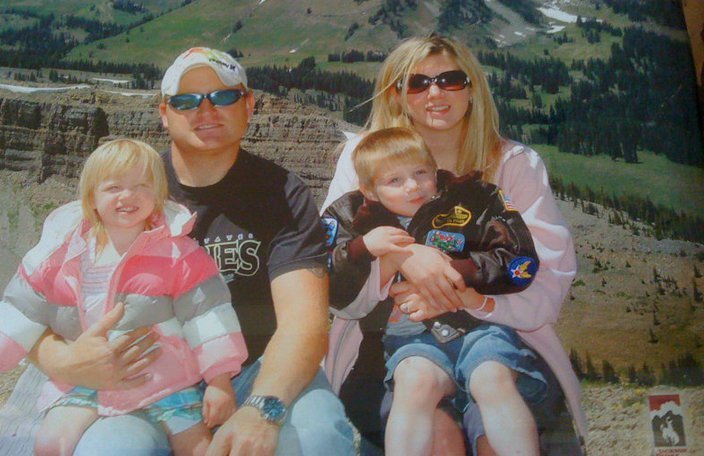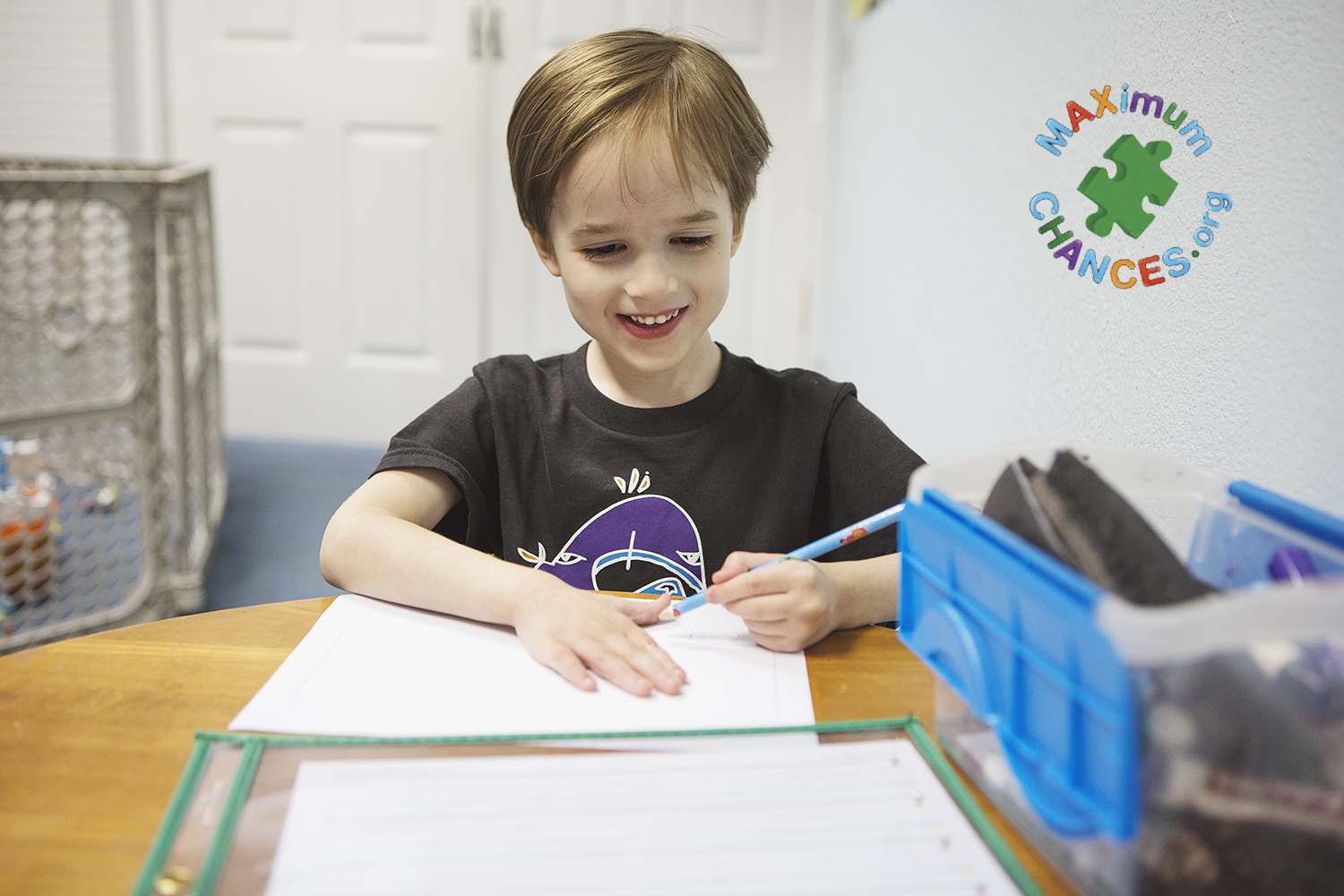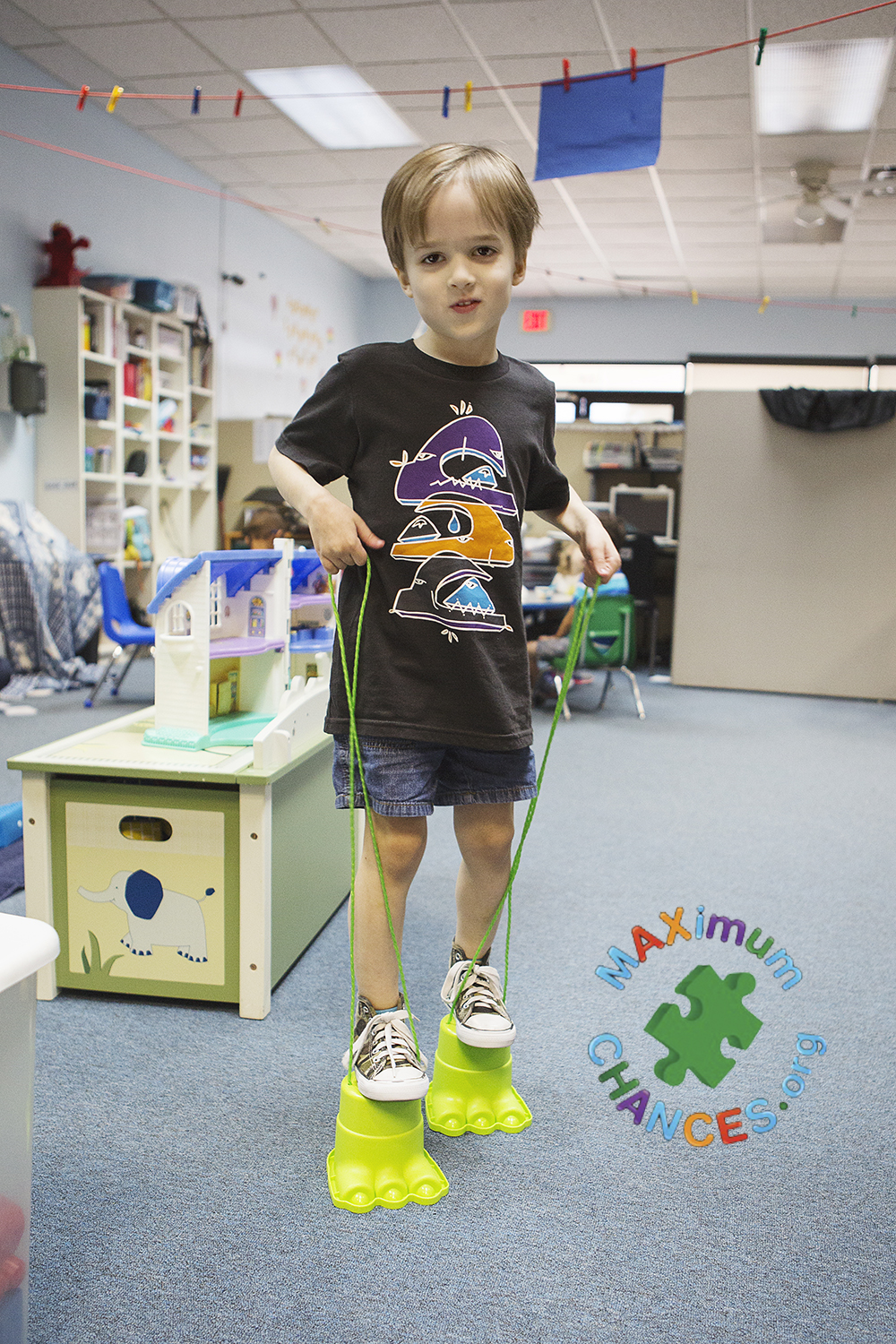With the North Texas Giving Day coming up this September 22nd, we wanted to share with you an example of how much of an impact your donations have on the lives of others. All of our donations go directly to helping get care to these children in need, and in a lot of cases the families themselves have overcome great challenges before finding us! One of these instances is the Mills family. Their story is quite remarkable and we are overjoyed to be able to help their sweet son Shane, especially after all his father, Sonny, has done for our country! Shane has autism and has been unable to speak his whole life. His sister is also deaf, and his father, Sonny, is a retired Marine and a disabled veteran. The dad, Sonny, was wounded severely in Fallujah, Iraq by an RPG and forced to retire because of the severity of his injuries As a retired Marine and disabled veteran, the family relies on Tricare for coverage of medical services. Because Sonny is retiree, Shane’s ABA therapy care is not covered by Tricare. As a result, the family faces out of pocket costs of nearly $5,000 a month! They sold their home to pay for the medically recommended ABA treatments for Shane.

We are trying to increase their exposure to different types of therapy. So far, we at Maximum Chances have been able to provide funding for bio medical treatments at The Kotsanis institute for Shane and just approved them for an auditory training program which he will greatly benefit from! These training treatments are to improve his communication skills at home and at school. He still doesn’t talk just yet, but has been increasing his signs. Shane has also been more engaged at school and is starting to do more things for himself. Shane’s father, Sonny, feels that the diet and supplements introduced have been helping too, which is great!


We are doing all we can to help contribute to getting Shane the treatment he needs to thrive. We go through an astounding amount of applications to help families just like the Mills’ and do our very best to get them the help they truly deserve! No amount of help is too small and we, and families like the Mills’ are forever grateful for everyone who helps them.

Here is a little excerpt from their biography Sonny has shared with us.
MILLS FAMILY BIOGRAPHY:
Lance Corporal Hardy Mills was born in Azle, TX and raised in Millsap, TX. He grew up playing football and hunting with his dad. His father was also marine and was the inspiration to Hardy joining the Marines. In December of 2002, he joined the U.S. Marines, and deployed to Iraq with the 1st Marine Expeditionary Force in January 2004. On June 29th of that year, in the city of Fallujah after Operation Vigilant Resolve, one of the bloodiest engagements of the war, he was on top of a gun truck when he and a fellow Marine were struck by a mortar. He was knocked unconscious and woke up with a hole in his back, and covered with blood. For several days after the attack, he was unable to hear due to the explosion. His injuries included a lacerated spleen, broken scapula, severed leg artery, both lungs collapsed, infections, and severe burns among others. The doctors said that he would probably not live through the night due to a tremendous loss of blood. After being evacuated to Germany he went through three surgeries and then to Bethesda, Maryland where he went through more surgeries, including multiple skin grafts. It was there that he was told that he would never walk again, but he proved them wrong.
His numerous awards include the Purple Heart, a Combat Action Ribbon, the Navy Unit Citation, and and a letter
of appreciation coming from President Bush. Lance Corporal Mills has retired from the Marine Corps in late 2006 and now lives with his wife Danielle and children Shane and Madelyn in FT Worth, TX. After retirement they found out Shane has autism and is unable to speak. Madelyn was born deaf as well. In 2011 their insurance was not picking up the autism treatment they then had to sell their home to pay for his therapy. In 2013 Autism Speaks heard about the family’s struggles and what Hardy had done for his country they decided to step in and do a documentary on the Mills family. The film was called Sounding the Alarm after going to the Tribeca Film Festival and meeting Robert Deniro the popularity grew and later became a hit on Netflix. Danielle his wife is very involved in Shane’s and Madelyn’s treatments and is an amazing wife and mother. They both involved with Shane’s cub scouts and attending gymnastics practices with their daughter Madelyn. They look forward to settling down and start living a normal life.

By contributing to Maximum Chances you are helping all of the families in our program, like the Mills Family, and enabling us to add even more deserving families to the list! Here is the link to our North Texas Giving Day page, where on September 22nd ONLY, you will be able to donate to this link, giving us the opportunity to get bonus funds from NTXGD organization!
https://northtexasgivingday.org/npo/maximum-chances

If you’d like to help today, you may also donate directly to us via this link – Maximum Chances Donation Page

































Recent Comments